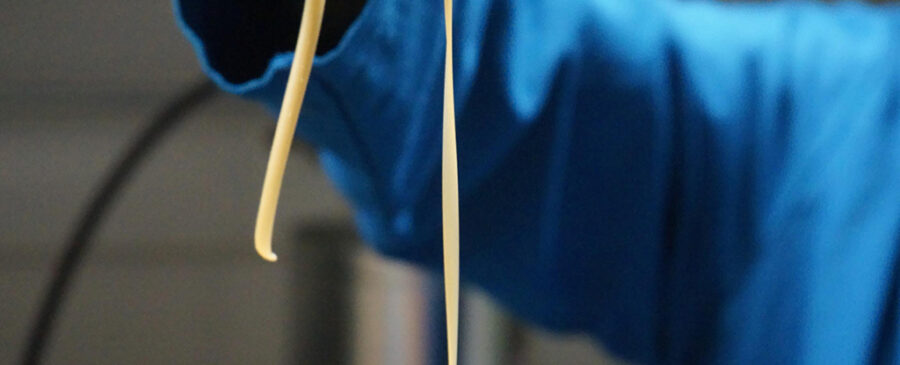A recent discovery in the field of science and technology is causing excitement among researchers and environmental activists: it is a new type of plastic that has a built-in ability to self-degrade, thanks to the presence of bacterial spores inside it.
This innovation results from a combination of thermoplastic polyurethane (TPU) with Bacillus subtilis bacteria, which have been genetically modified to withstand the high temperatures involved in the plastic production process.
“What is remarkable is that our material degrades even in the absence of additional microorganisms,” says John Pokorski, a polymer scientist at the University of San Diego, who led the team responsible for the discovery.
This progress represents a promising solution to the growing plastic pollution problem. Unlike previous attempts, which relied on bacterial enzymes and fungi found in soil and compost piles, this new material only needs the bacterial spores inside it to start the decomposition process.
The study was published in the journal nature communications, It describes how the new self-degradable plastic can decompose under ideal composting conditions, with 90% of the material disappearing within five months.
“Adding bacterial spores not only makes the plastic biodegradable, but also strengthens it by about 30% and increases its flexibility,” explains Pokorski.
This discovery is particularly important given the urgent need to find sustainable alternatives to traditional plastic. TPU is widely used in many products, but there are currently no effective recycling methods, and thus it becomes an important source of environmental pollution.
Likewise, researchers plan to scale up this technology to create a wide range of biodegradable materials, thus helping mitigate the environmental impacts caused by plastic.
This discovery represents an important advance in the search for more sustainable and environmentally friendly alternatives to traditional plastics, and demonstrates the potential of bacterial spores to revolutionize the plastics industry.
Having proven its effectiveness, researchers hope that this technology will be adopted commercially soon, so that it will be an effective solution to the growing environmental crisis caused by plastic.

“Coffee trailblazer. Social media ninja. Unapologetic web guru. Friendly music fan. Alcohol fanatic.”

